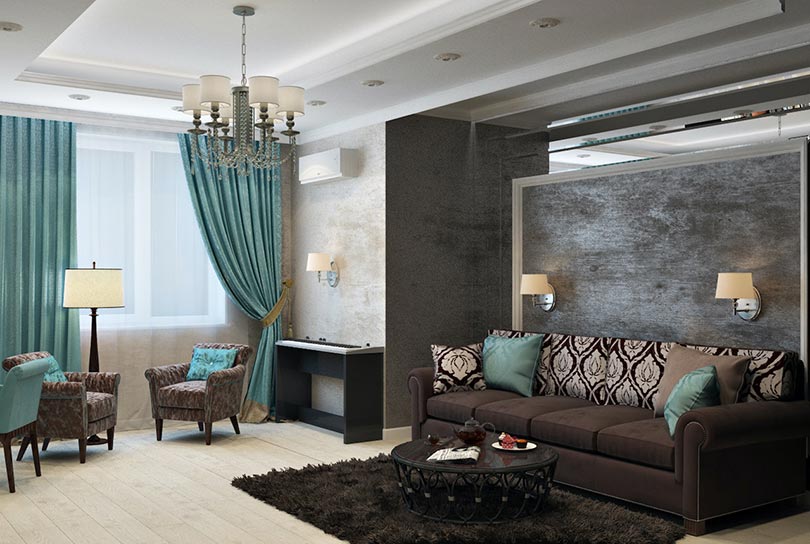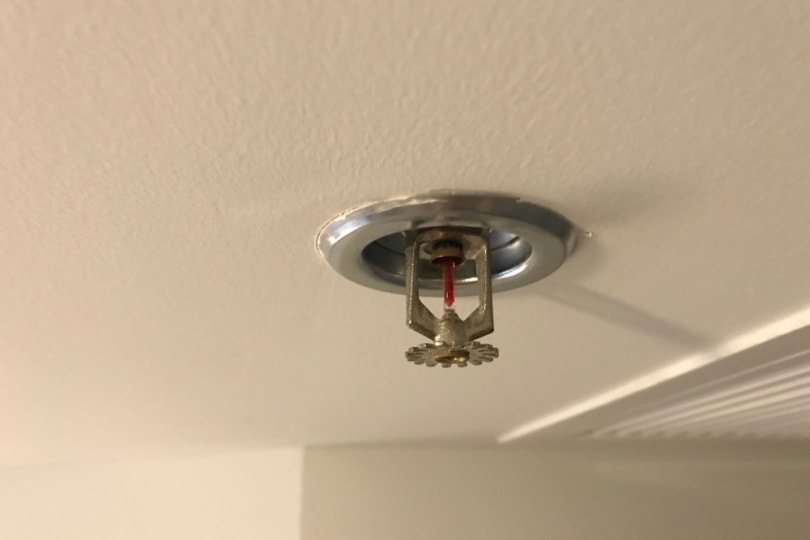Should You Insulate Your Interior Walls? Benefits & Options
-
Chris Dinesen Rogers
- Last updated:

You’re probably familiar with insulation for your exterior walls and attic. After all, these parts of your house are facing the elements. A breach anywhere in these places can cause air leaks and drive up the cost of heating and cooling your home significantly. You may wonder if it’s necessary for the interior walls that are relatively isolated from these effects.
The short answer is you should insulate them, too, for the same reasons and then some.
 Benefits of Interior Insulation
Benefits of Interior Insulation
Insulating the interior walls can improve the energy efficiency of your home by adding to the existing protection you have. That’s a valid reason, particularly if you live in an extreme climate or experience all four seasons. While insulation implies keeping your house toasty warm, it also keeps it cool in the summer. The savings are significant.
The rooms in your home may exist at different temperatures. For example, those above an unheated garage are likely cooler in the winter and warmer in the summer. The number of windows each one has can play a role in its comfort level. The landscape of the area around your house can also influence each room’s temperature. Those with trees or shrubs outside may have natural insulation.
Likewise, the sun exposure a room gets will keep some cooler or warmer than others. Those near a basement door or other egress may be draftier than others. Insulating your interior walls levels the playing feel throughout your house. But wait! There’s more!

Moisture and Mold
There’s a good reason why you use different types of paint in bathrooms, kitchens, and laundry rooms than others. They make cleaning easier. They also prevent mold and mildew from developing. Adding another layer of insulation to your interior walls can take it one step further if you choose an option with a vapor barrier. It’ll help prevent moisture from reaching places without this protection.
Fire Protection
Another benefit of interior insulation is an added layer to protect your loved ones from fire. It can slow the spread of a blaze, particularly with fire-resistant products like mineral wool. It’s worth noting that minutes could mean lives saved. Most insulation typically meets the Class 1 Fire Rating requirements for a slower flame and smoke spread.

Soundproofing
If you’ve ever lived in an apartment or dorm, you probably know all about soundproofing. There are few things more annoying than a noisy occupant in the adjacent room. That’s particularly true if you’re a light sleeper. You can try other options, such as installing a ceiling cloud or acoustic foam paneling. However, you can nip it in the bud by insulating interior walls in unfinished rooms.
While it’s not 100% foolproof, insulation will go a long way toward sound dampening. The best thing about it is that it won’t interfere with the look of your room once the sheetrock is in place. If you have a vocal pup, the added layer may cut down the noise on the other side of the wall.
Things to Consider When Insulating Interior Walls
Several types of insulation are available. Many are easy for the casual DIYer. You should hire a contractor for the more difficult projects.
- Fiberglass
- Rockwool
- Rigid fiber
- Cellulose
- Concrete block
- Foam

R-Values
You won’t be shopping for insulation long before you come across R-values. They are a measure of the thermal resistance of a material. Several factors will determine which products you should use, such as the local building codes, wall location, and your area’s climate. EnergyStar.gov classifies the country based on climate zones.
Using this information and the wall’s location in your house, you can get the one the agency recommends. These values only speak to air movement and are not an indication of soundproofing. However, the higher the number, the more effective the insulation. We recommend using the values for exterior walls for your indoor project at the minimum.
Making It Legal
Remember that if you’re removing or adding a wall, you probably must get a building permit. They usually aren’t terribly expensive. It’s better than the alternative, a visit from the inspector and a fine—along with the cost of the permit. There are also building codes to consider. They exist for public safety, including yours. It’s a wise plan to find out what you must do before starting your project.
 Conclusion
Conclusion
Insulating your interior walls is an excellent way to improve your home’s energy efficiency. It’ll make your space more comfortable while saving on your utility bills. It’s essential to start with a call to your city hall to ensure your compliance with the existing building codes. If you’re handy, you might be able to get the job done yourself. If not, make sure to contract it out to a professional certified installer.
Featured Image Credit: Alexandre Zveiger, Shutterstock
Contents
 Benefits of Interior Insulation
Benefits of Interior Insulation